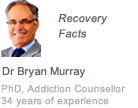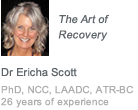MDMA Addiction
In the early stages of MDMA addiction the effects of just one pill can last for up to 10 hours. One of the most popular party drugs of all time Methylenedioxymethamphetamine, to give MDMA a formal name, also known as Ecstasy, X, or “The Hug Drug” – many MDMA addicts consider it to be the perfect drug.
Why has MDMA earned this accolade? Perhaps because using MDMA lets the user to party all night, for roughly the cost of a single cup of Latte Americana at the world’s favorite coffee shop. It also allows them to begin the next day with absolutely no hang over or negative after-effect whatsoever. But in reality the effects of MDMA are profound.
What is MDMA?
There are essentially two types of MDMA, both of which are unpredictable and dangerous:
- MDMA plus cocaine
this mix gives the user a tremendous amount of energy throughout the night. Most often it is this mixture is sought when an individual is looking to attend a “Rave” (all night dance party). - MDMA plus heroin
this concoction allows for a far more intimate one-on-one experience. If the user is looking for a night in with a special someone, or perhaps even several special someone’s, then this is the preparation that they seek.
MDMA mixed with heroin is called “dirty X”. The high is not clean as it is with the cocaine variety, or nearly as clean as it would be were someone to take pure MDMA. MDMA that is mixed with Heroin looks dirty, as in it is covered, sometimes entirely, with brown or other dark colored speckles. A “clean” MDMA pill is a single solid color, usually a white or light yellow.
Psychiatrists, in an attempt to treat cancer patients, originally used MDA, the drug’s abbreviated name, before the amphetamine was added to it. It was thought that if the patient could loose some inhibition, and more freely express pent up resentments, that it might relieve the burden that they carried, allowing other treatments to be more effective. While the patients felt fantastic, and were more emotive (a side effect of the drugs use) the clinical trials did not, unfortunately yield any significantly positive long-term effect.
A short time later, the then useless drug was bought out, altered, and turned into the highly sought after drug that it is today.
Why is MDMA dangerous?
If MDMA is such a perfect drug, no hang over in the morning, party all night, lots of either energy or intimacy, or both, then why is MDMA such a dangerous drug? It is dangerous because of the drugs it is usually mixed with, either heroin or cocaine, both of which are highly addictive and illegal to possess around the world.
MDMA is almost never sold in a completely pure form, and the strength of dosage is pretty hit and miss too. An MDMA addict never knows exactly what they are ingesting, the strength of the dose or any poisons that the pill has been mixed with.
Headlines about fatalities resulting from MDMA break out every now and then from the United States to the Ukraine, when a batch of MDMA may have been processed with strychnine or some other lethal additive and young people pop a pill, go dancing, and die. MDMA has side-effects which can be dangerous as well:
Psychological
- Anxiety and paranoia
- Depression
- Irritability
- Fatigue
- Impaired attention, focus, and concentration, as well as drive and motivation (due to depleted serotonin levels
- Residual feelings of empathy, emotional sensitivity, and a sense of closeness to others
Physiological
- Dizziness, lightheadedness, and/or vertigo
- Loss of appetite
- Gastrointestinal disturbances, such as diarrhea or constipation
- Insomnia
- Aches and pains, usually from excessive physical activity (e.g., dancing)
- Exhaustion
- Jaw soreness, from the grinding of the teeth, or clenching of the jaw muscles
- Dehydration
- Raised body temperature
- Increased heart rate and arrhythmia
There are also side -effects associated with the use/abuse of MDMA that seem not to be problematic, including:
- A general and subjective alteration in consciousness
- A strong sense of inner peace and acceptance of self
- Diminished hostility and aggression
- Lessened anxiety and insecurity
- Extreme lift of mood, accompanied by euphoria
- Feelings of understanding, empathy and compassion towards others
- Better self-confidence
- An intensification of all bodily senses (sound, touch, smell, vision, hearing)
- An intense sense of energy, stimulation and arousal
- A marked decrease in pain sensitivity
Permanent brain damage caused by MDMA addiction
In a series of studies conducted on rats and primates Dr. George Ricaurte and his colleagues at Johns Hopkins Medical Institutions first determined that a single dose of MDMA, only slightly higher than the dose taken by humans, significantly damaged neurons and the production of serotonin. Serotonin is a neurotransmitter in the brain that influences moods, appetite, sleep, and other important functions. Dr. Ricaurte later reported that 12 to 18 months after the brains of squirrel monkeys had been damaged by MDMA, serotonin-producing nerve fibers had re-grown abnormally in some brain regions and failed to re-grow at all in others.”
MDMA addiction affects the entire physiological system. It affects the body, the musculature, motor functioning; both fine and gross, and the brain. It is said that every time a user/addict ingests an MDMA pill, a section the size of a dime is severely damaged in their brain. Scans of MDMA addicts brains around the world all have a common pattern of blotchy areas showing brain damage.
Intervention for MDMA addiction
Sometimes MDMA addicts do not see that they have an MDMA addiction. They are not aware of how their behavior has changed, or how serious the situation they are in is. In these circumstances an intervention may be necessary. Intervention can help the addict come to the realization that they do indeed have a serious problem that needs to be resolved, and that you are there to support them.
Intervention is not simple though, and generally it is wise to obtain the services of a professional interventionist or intervention team. A planned and professional intervention can be successful in helping addicts to admit to the problem, accept that they need help and enter rehab or treatment.
Treatment for MDMA addiction
Because the entire body is affected so severely by the use of MDMA, the only types of therapies that offer any chance of substantial recovery are holistic programs. The holistic approach treats the entire person, not as an addict, not as a criminal, but as a human being with issues that need to be resolved. As there is a probability that an MDMA addict will have suffered a degree of brain damage the holistic treatment approach is particularly useful as some of the therapies offered will include re-training for a career that is within the capabilities of the addict.
To incriminate, charge, and place any addict in police custody is a crime in and of itself. Certainly, if the individual has violent tendencies, is malicious, or is a criminal in ways that do not pertain to their drug addiction, then they must be dealt with appropriately. Otherwise, to incarcerate someone for being an addict simply makes no sense at all when there are programmes that can grant them a full successful and sustained recovery.
If someone is an addict, then there is a reason why they have the addiction and this needs to be discovered and treated. The addicts’ family needs to be involved in the treatment, as do any close friends who are not addicts as well. This can bring the support network of the addict together and help to heal the resentments that almost certainly will have been festering between them and the addict. This individual, this addict, has most likely been running away from something for a very long time, and has certainly been avoiding reality.
Most MDMA addicts, once treated, can once again become fully functional members of society. But sadly, for those who have extensive brain damage this may not be possible. The potential outcome worsens the longer the addict is using and abusing MDMA, so a swift response is vital.
In the event that a recovering addict is not able to live a normal, independent life, then options for supported community living, remaining at home with parents or, in the most damaged, life in the care of an inpatient mental facility for long-term psychiatric care and evaluation will need to be considered.












